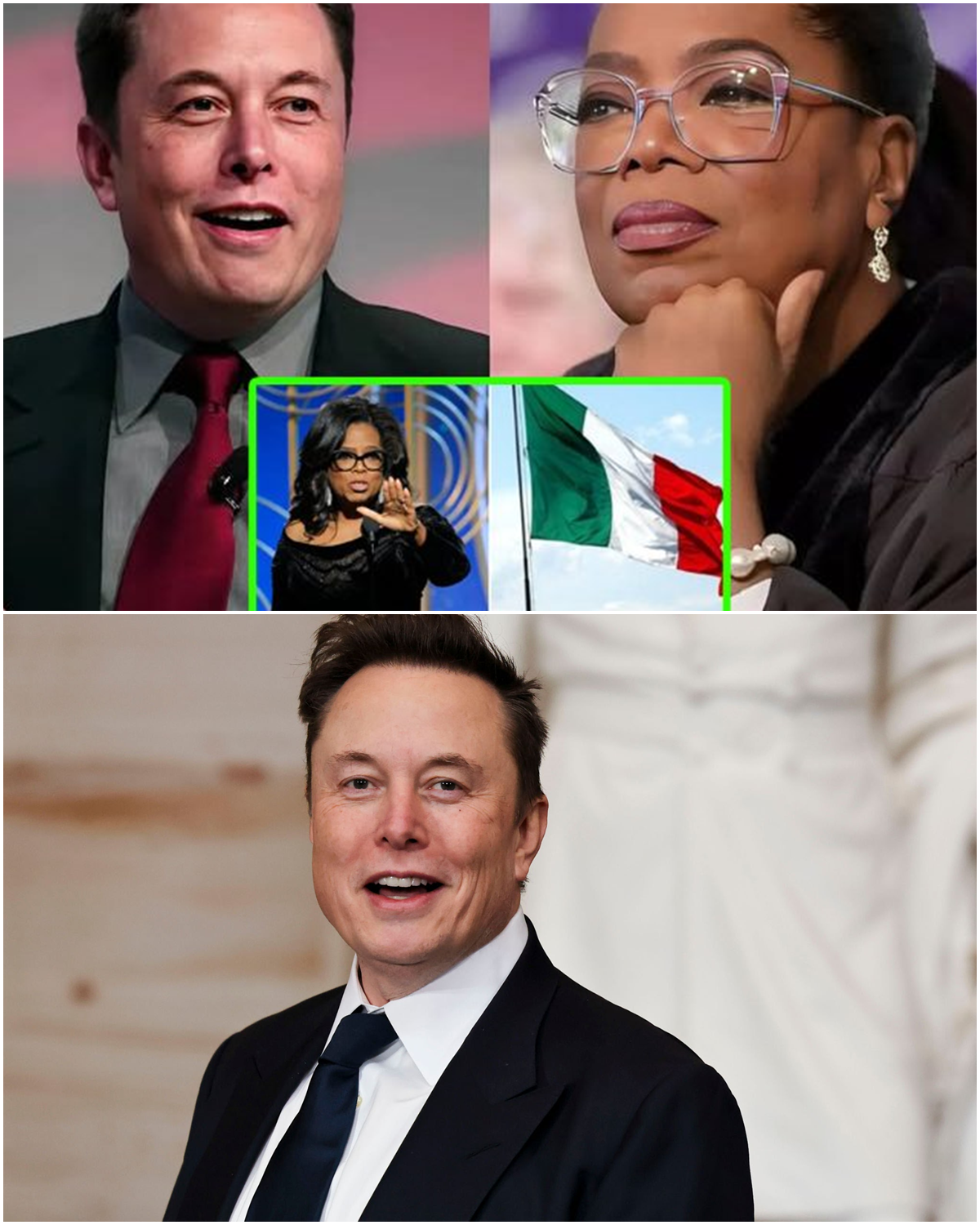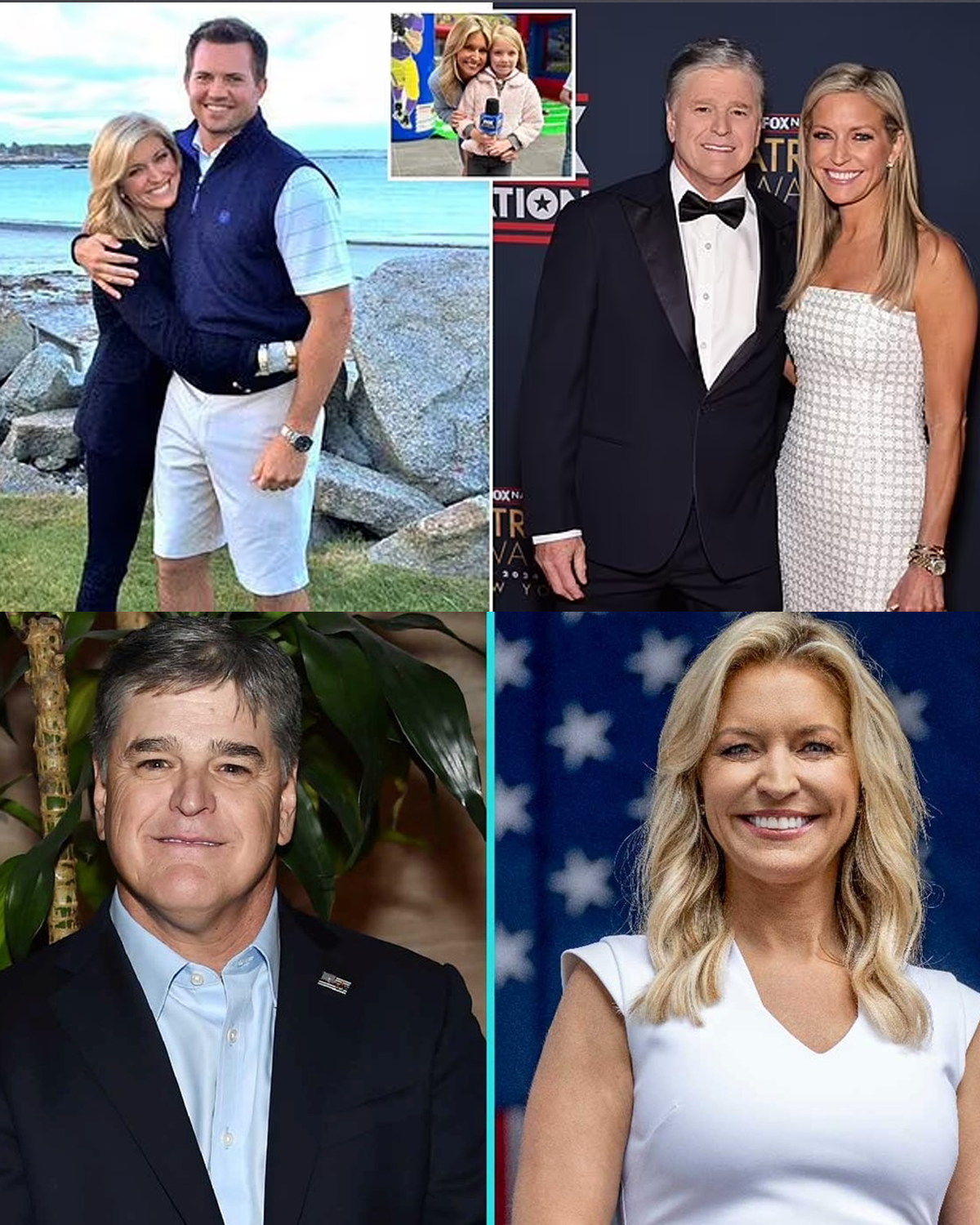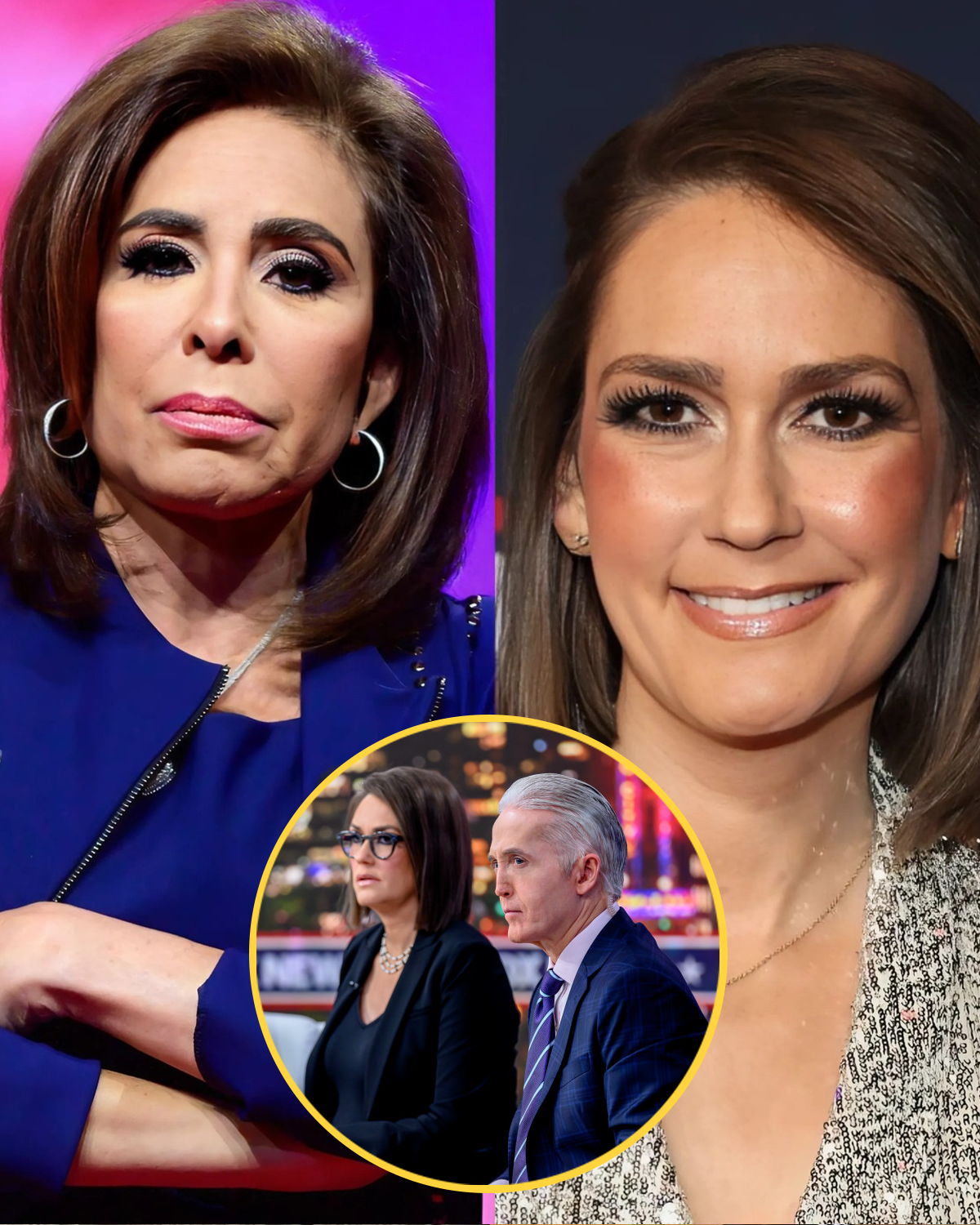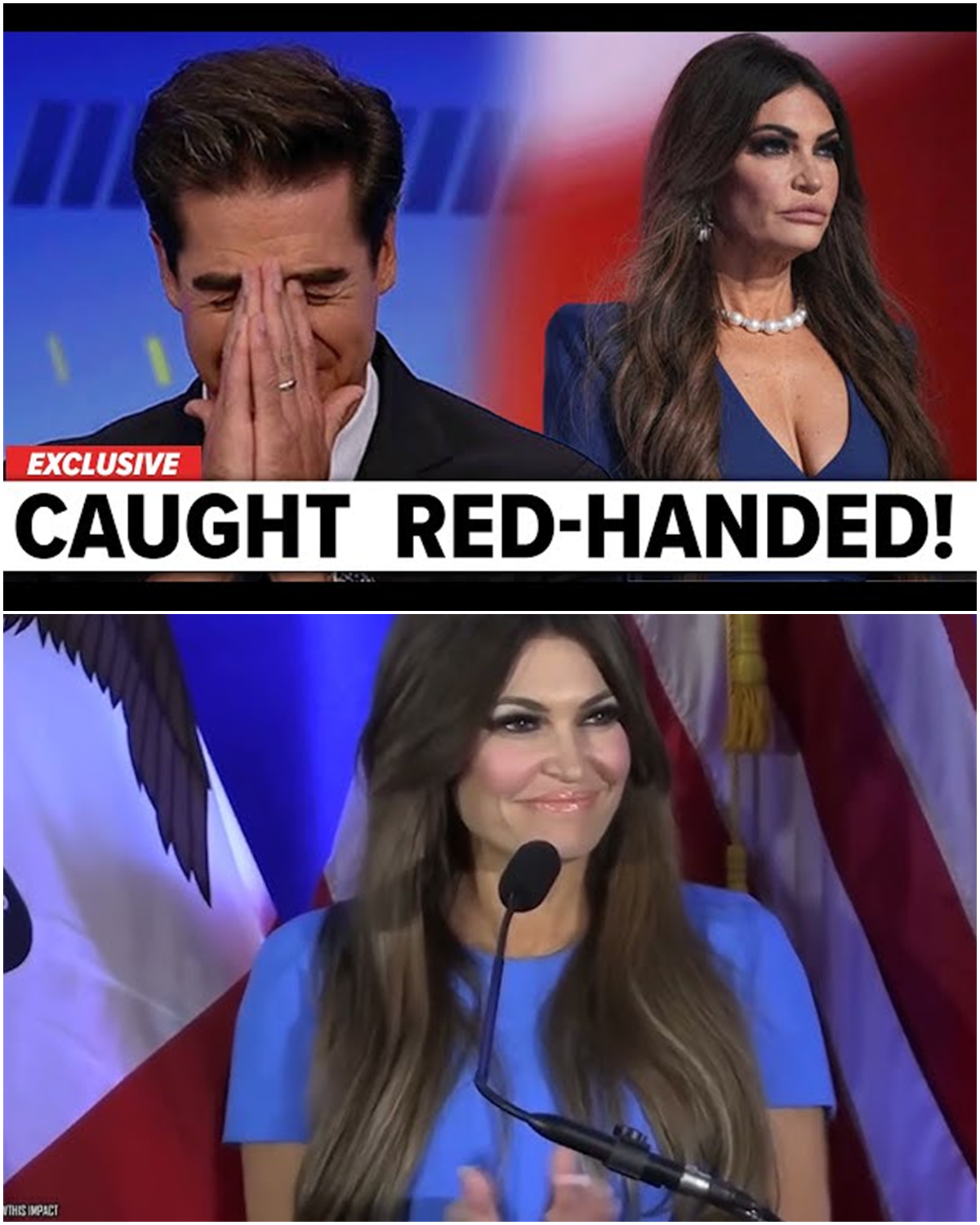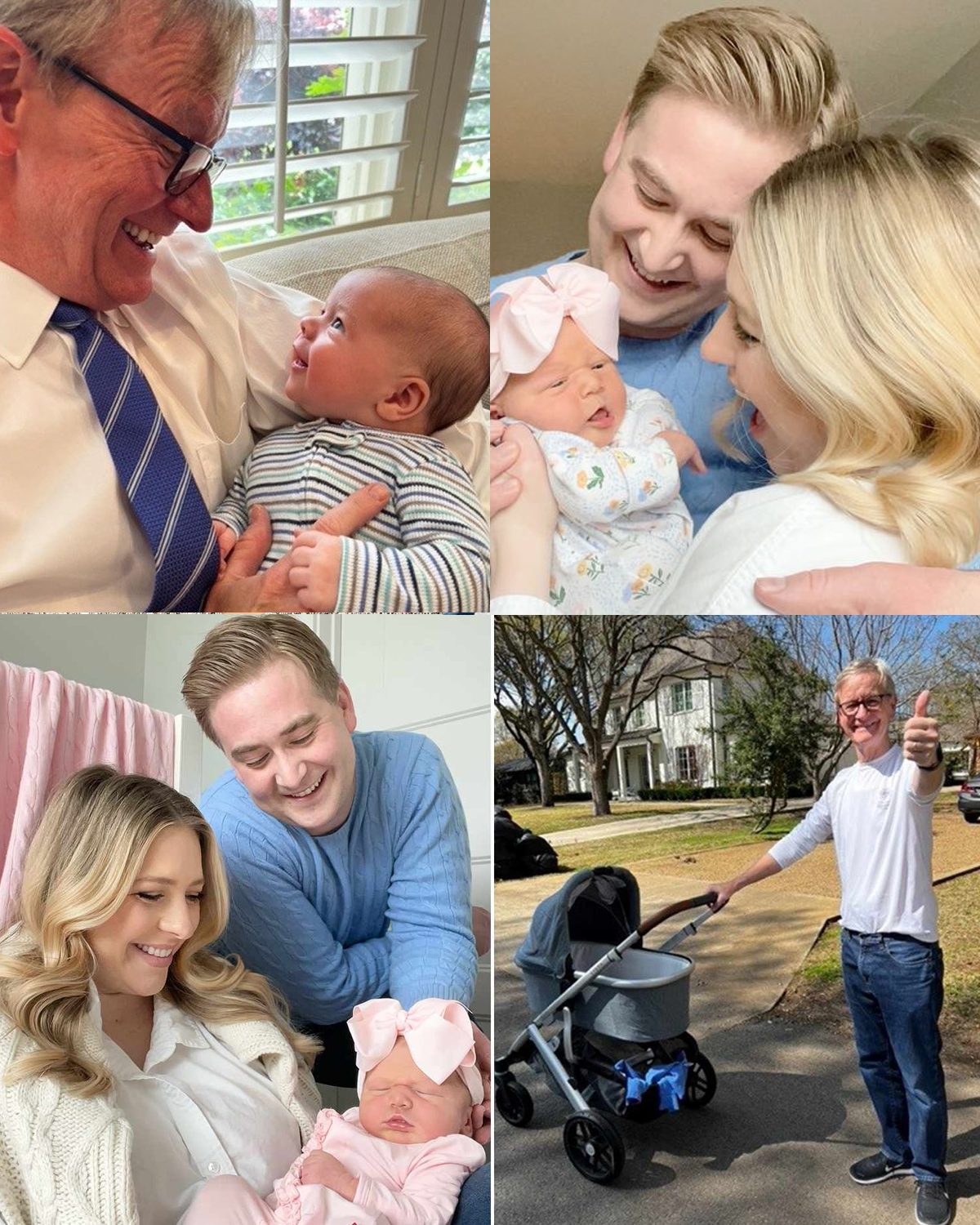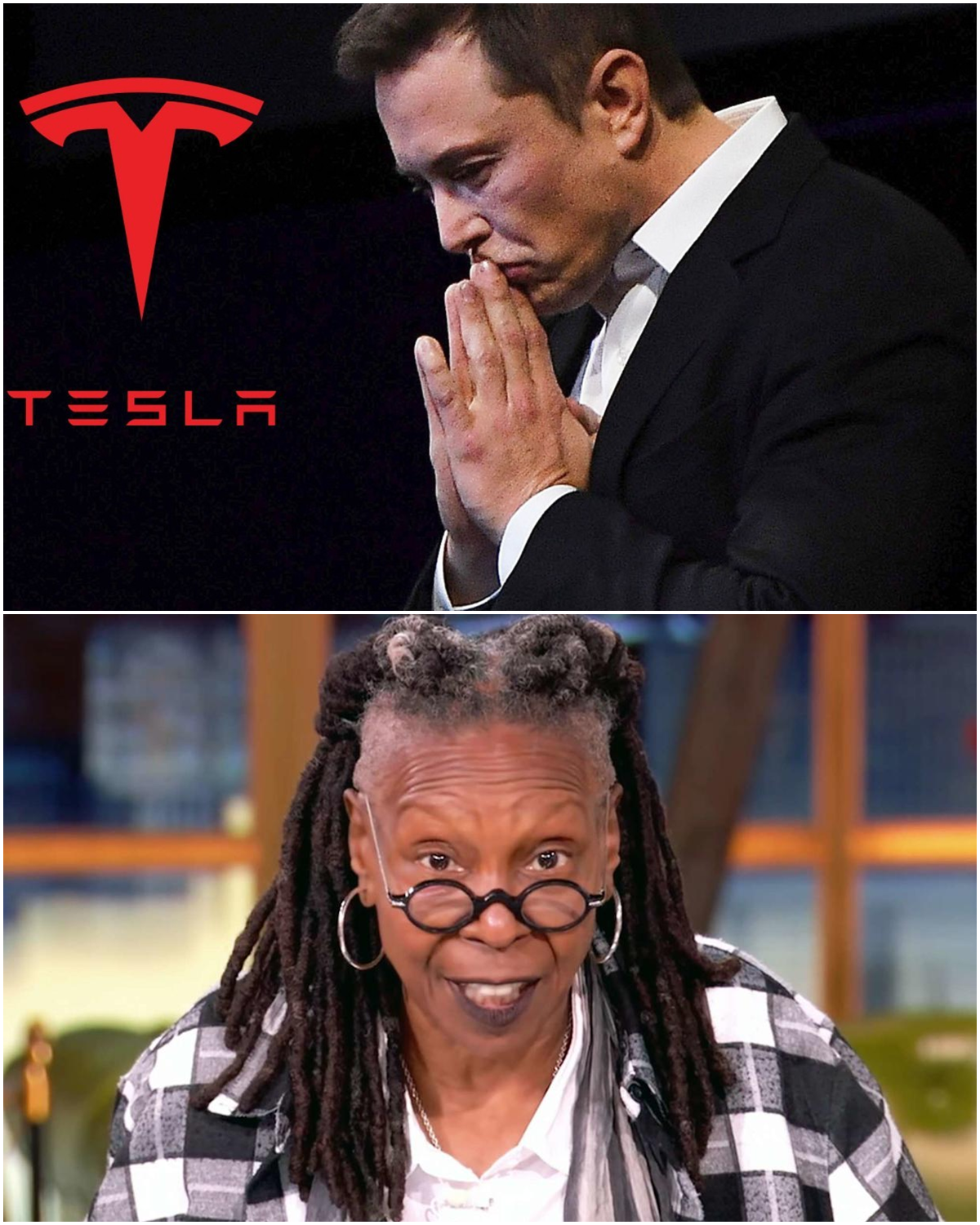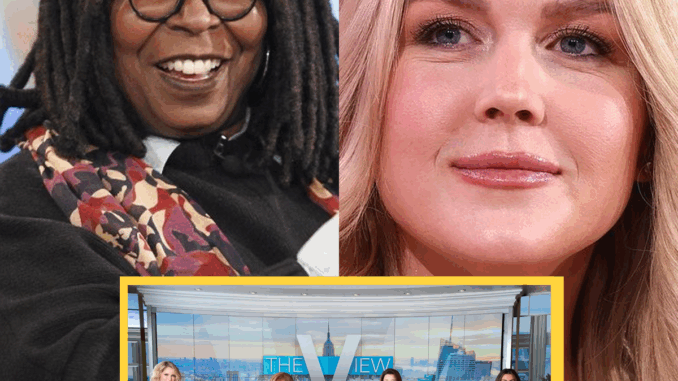
Karoline Leavitt and Whoopi Goldberg’s Fiery Feud: A Battle Over Media Bias, Misinformation, and Political Discourse
In an era of heightened political polarization, a new chapter in media and political discourse has unfolded between Karoline Leavitt, the White House Press Secretary, and Whoopi Goldberg, the longtime host of The View. Their recent on-air clashes have ignited a firestorm of public debate, as the two prominent figures from opposite political spectrums spar over issues of media bias, political narratives, and the very role of journalists in shaping public opinion.

For Leavitt, who has quickly ascended the ranks in the Republican Party, the growing tensions with The View are more than just personal feuds—they represent a larger ideological battle between a new wave of political figures and traditional media personalities. As a vocal critic of mainstream media outlets, including The View, Leavitt’s direct approach to challenging what she perceives as biased reporting has earned her both admiration and criticism, particularly in the context of her ongoing interactions with Goldberg and her co-hosts.
A Growing Rift: Tensions Between Leavitt and Pirro
The clash between Leavitt and Goldberg didn’t come out of nowhere. Over the past several months, tensions between The View and Leavitt have been brewing. Leavitt’s unapologetic stance on controversial issues, combined with her tendency to openly call out media bias, has put her at odds with more traditional figures in the media industry, including the hosts of The View.
The tension between Leavitt and Goldberg boiled over in recent weeks, particularly during segments addressing President Donald Trump’s policies and the role of the federal government in managing political discourse. For the typically calm and collected Leavitt, the verbal jabs and condescending remarks from Goldberg were difficult to overlook. Goldberg, known for her fiery delivery and often combative stance, seemed to struggle to control the narrative when Leavitt came armed with sharp rebuttals and factual evidence.
According to inside sources, Leavitt’s growing frustration with Goldberg’s tactics reached a tipping point when, during one particular segment, Goldberg repeatedly dismissed Leavitt’s arguments with pointed retorts that many viewers perceived as out of touch with reality. As the debate escalated, Leavitt’s responses became more direct and pointed, leaving Goldberg visibly flustered and struggling to maintain control of the discussion.
The Moment of Explosion: Leavitt vs. The View
The atmosphere on set was already charged as The View hosts sat down to discuss current events, including political hot topics. The day’s discussion centered around government policies on immigration, economic stimulus packages, and the latest political maneuvers by the Republican Party. Tensions were high, but when Leavitt took issue with the way Goldberg and her co-hosts framed certain issues, the exchange went from heated debate to full-blown confrontation.
The flashpoint occurred when Goldberg and Leavitt began debating the effectiveness of Trump’s policies in Congress. Goldberg accused Leavitt of defending a party that had failed the American people, while Leavitt, in turn, challenged Goldberg’s assumptions about the broader political landscape. As their verbal sparring escalated, Leavitt accused Goldberg of promoting a misleading narrative, which only fueled Goldberg’s anger. The two began speaking over each other, their voices growing louder, and the discussion quickly spiraled out of control.
“Enough is enough!” Leavitt snapped, her voice rising with emotion. “This is about facts, not partisan rhetoric!”
Goldberg, attempting to regain control, snapped back, “I’m not the one pushing an agenda here, Karoline. You are!”
At this point, the situation became so heated that producers intervened. In a rare move, they cut to a commercial break, and when the show resumed, Leavitt was noticeably absent from the set. The producers’ decision to escort Leavitt off set shocked both the audience and the rest of the panel, who were left uncertain about what had transpired during the break.
The Backlash: Reactions and Public Debate
As expected, the public’s reaction to the incident was swift and loud. On social media, hashtags such as #LeavittVsGoldberg and #TheViewFeud began trending, with viewers voicing their opinions on the confrontation. While some fans praised Leavitt for standing her ground and refusing to be bullied by Goldberg, others criticized her for escalating the situation and being too combative.
Many viewers expressed disappointment in Goldberg’s behavior, noting that her inability to respond to Leavitt’s factual arguments undermined her credibility. “Whoopi Goldberg just couldn’t handle a woman who knows what she’s talking about,” one Twitter user wrote. “Leavitt dismantled her point by point, and she couldn’t take it.”

On the other hand, some supporters of Goldberg accused Leavitt of disrespecting her co-host and using aggressive tactics to deflect from the actual issues at hand. “Leavitt thinks she can bully her way through an argument, but Whoopi won’t be silenced,” another user commented.
This public spat reflects a broader divide in American media and politics, where partisanship often overrides productive dialogue. The incident has raised important questions about the role of news anchors in moderating political discourse and whether the culture of cable news is becoming too combative and divisive.
The Bigger Picture: Media Bias and Political Polarization
The altercation between Leavitt and Goldberg highlights the increasingly polarized nature of American politics and media. As the country grows more divided, media outlets like The View are under increased scrutiny for their portrayal of political events. Critics have long accused the show of leaning too far left, and many conservatives see Leavitt’s fiery exchange with Goldberg as a small victory in the ongoing battle against what they perceive as biased reporting.
Leavitt’s role in this controversy is significant, as she represents a new wave of political voices that are challenging traditional media outlets. With her direct, no-holds-barred approach to politics, she is reshaping the narrative and drawing attention to the ways in which cable news shapes public perception.
For Goldberg and The View, the incident represents a growing challenge. As conservative voices like Leavitt gain traction, mainstream media networks will be forced to adapt and reconsider their approach to political discourse. While The View has long been a platform for progressive ideas, it must now navigate a landscape where viewers demand fairness and accountability from both sides of the political spectrum.
Looking Ahead: The Future of The View and Leavitt’s Role
As the dust settles from the confrontation between Leavitt and Goldberg, all eyes are now on the future of The View and the role that Leavitt and other conservative voices will play in the political media landscape. Will Leavitt’s bold approach continue to disrupt the status quo, or will it lead to increased scrutiny and backlash from both her critics and her supporters?
For The View, the question remains: How will the show handle future debates and discussions with rising conservative stars like Leavitt, who are determined to challenge the network’s narrative? Will The View evolve, or will it continue to face internal friction as the political climate grows more polarized?
Leavitt’s return to the show after the incident will be closely watched, with fans and media insiders alike eager to see how the producers and hosts address the growing tension. The Tarlov-Pirro incident earlier this year was a reminder of the fine line cable news networks walk between passionate debate and chaos. This latest altercation underscores the need for respectful, fact-based discussions in a time when political dialogue often veers into personal conflict.
As the debate over media bias and accountability continues, Karoline Leavitt’s rise to prominence will undoubtedly be one of the defining stories in the 2024 election cycle. Whether she remains on The View or shifts to another platform, her voice will continue to challenge the status quo and reshape the future of political commentary in the media.
Conclusion: A Shift in Political Discourse
The explosive confrontation between Jessica Tarlov and Jeanine Pirro, coupled with the simmering tensions between Karoline Leavitt and The View, signals a pivotal moment in American media. With viewers increasingly demanding fairness, accountability, and substance in political debates, it remains to be seen whether mainstream media outlets will evolve to meet these expectations or continue down a path of sensationalism and partisan conflict. The future of political discourse on television is now more uncertain than ever, but one thing is clear: the days of passive, one-sided discussions may be numbered.



